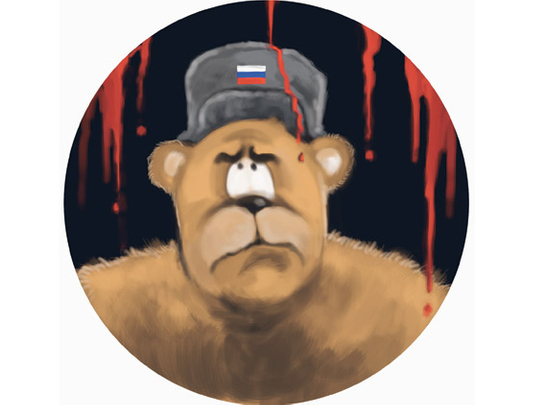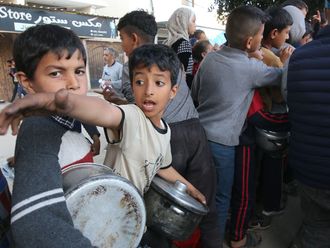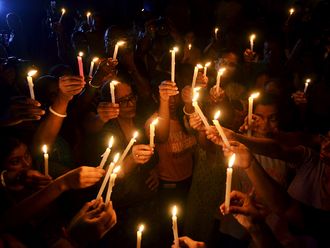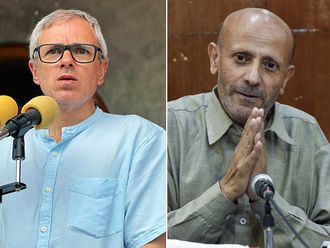
If recent history is any guide, the ethnic violence roiling southern Kyrgyzstan is unlikely to be prolonged or to spark a wider conflagration in neighbouring Uzbekistan and Tajikistan.
Similar outbreaks ignited by disputes over land, food prices and poll results across the divided Fergana valley in 1990 and 2005 eventually subsided, with or without the type of foreign intervention sought at the weekend by the interim government in Bishkek.
But these precedents offer scant comfort to the big powers — Russia, China and the US — whose economic, security and strategic interests are increasingly affected by central Asian instability.
Kyrgyzstan's unresolved problems, including extreme poverty, poor education levels among the rural majority, complex ethnic and tribal rivalries, north-south divisions and the spread of extreme ideology mean the next crisis is never far away.
Russia is widely believed to have triggered the latest upheavals by undermining the now deposed president, Kurmanbek Bakiyev. Moscow's motives include control of key energy and transit routes and a desire to maintain, or restore, political pre-eminence in the former Soviet sphere. It is intensely wary of perceived Chinese and American regional encroachment.
But speaking after Russia helped consolidate the April putsch that overthrew Bakiyev, President Dmitry Medvedev tacitly acknowledged the perils inherent in the interventionist policy espoused by Prime Minister Vladimir Putin. "We wanted to intervene in a situation that is ultimately another country's sovereign affair in order to prevent bloodshed," Medvedev said. "As for whether this kind of situation could arise in other countries in the post-Soviet era — anything is possible — [It] could repeat itself anywhere."
Consequences
Moscow now appears reluctant to face the consequences of its actions, declining a request for Russian peacekeepers and referring the crisis to the hitherto toothless Collective Security Treaty Organisation (CSTO) of former Soviet republics. Conversely, it may be gratified by the reaction of other central Asian leaders.
As M.K. Bhadrakumar, an Indian former diplomat noted in Asia Times, a rattled President Islam Karimov of Uzbekistan dropped everything and hurried to Moscow after the Kyrgyz coup. "Karimov is a shrewd observer of regional politics. Of late Tashkent has been gravitating towards the west but the turmoil in Bishkek underscores Moscow's unique role as the preserver of regional security," Bhadrakumar said.
China has been more circumspect, issuing platitudinous, non-judgmental statements calling for a peaceful resolution. But the crisis has shown why it cannot remain indifferent or aloof. Kyrgyzstan, itself an important trade partner, stands astride vital routes to China's central Asian export markets, notably Kazakhstan.
More significantly, given the recurring unrest in China's western, largely Muslim province of Xinjiang, the ethnic Uighur population of Kyrgyzstan is estimated at up to a quarter of a million. That makes the country's stability a key security concern for Beijing.
Author Richard Lourie, writing in Moscow Times, said a new "great game" was under way in central Asia. During the First World War, he said, Kaiser Wilhelm of Germany had tried to instigate a jihad against British India. Now China feared similar agitation spreading from the Fergana valley into its territory. "Unstable countries like Kyrgyzstan could become the base and refuge for Uighur insurgents," Lourie said.
China was also mindful to defend its spreading pipeline network in central Asia. "China recently broke the Russian monopoly on energy transmission in the region, completing a gas pipeline from Turkmenistan to western China that crosses through nominal Russian allies such as Uzbekistan and Kazakhstan — Logic will dictate protecting those costly and valuable assets. That's when an ethics-free Chinese foreign policy might suddenly seem less appealing [to regional governments]," Lourie said.
Like Russia's toothless CSTO, the crisis has left the much vaunted, Beijing-sponsored Shanghai Co-operation Organisation (SCO), comprising central Asia states, also looking ineffectual and irrelevant. According to Richard Weitz, writing in the The Diplomat, the SCO's underperformance has raised questions about what use it may be in defusing future, possibly bigger regional challenges.
Amid these complex machinations and calculations, the Obama administration, not for the first time, looks like something of a helpless bystander, a naif abroad in a wild land. The US military base at Manas, logistically important for Afghan war supplies, is Washington's foremost Kyrgyz concern, whatever it may mumble about self-determination and human rights.
But the implications of April's Russian orchestrated putsch, like the Gulf of Mexico oil spill, were slow to dawn on a bumbling White House, and amid deteriorating security Manas' long-term future is now clouded in doubt.
So, too, is the reform schedule for a new Kyrgyz constitution and autumn parliamentary elections. Having swapped democracy promotion for foreign policy "realism", Barack Obama risks the worst of both worlds.









